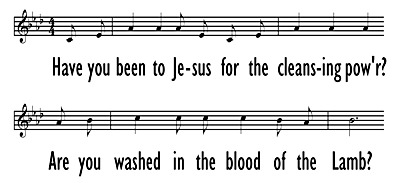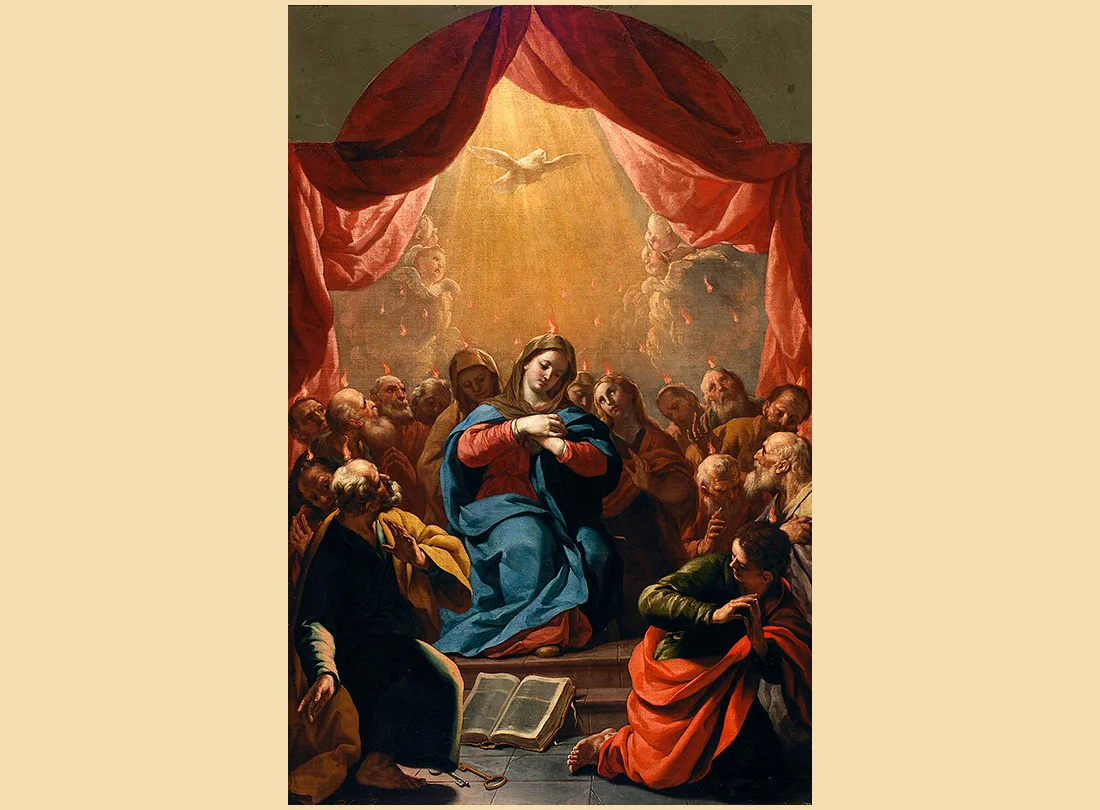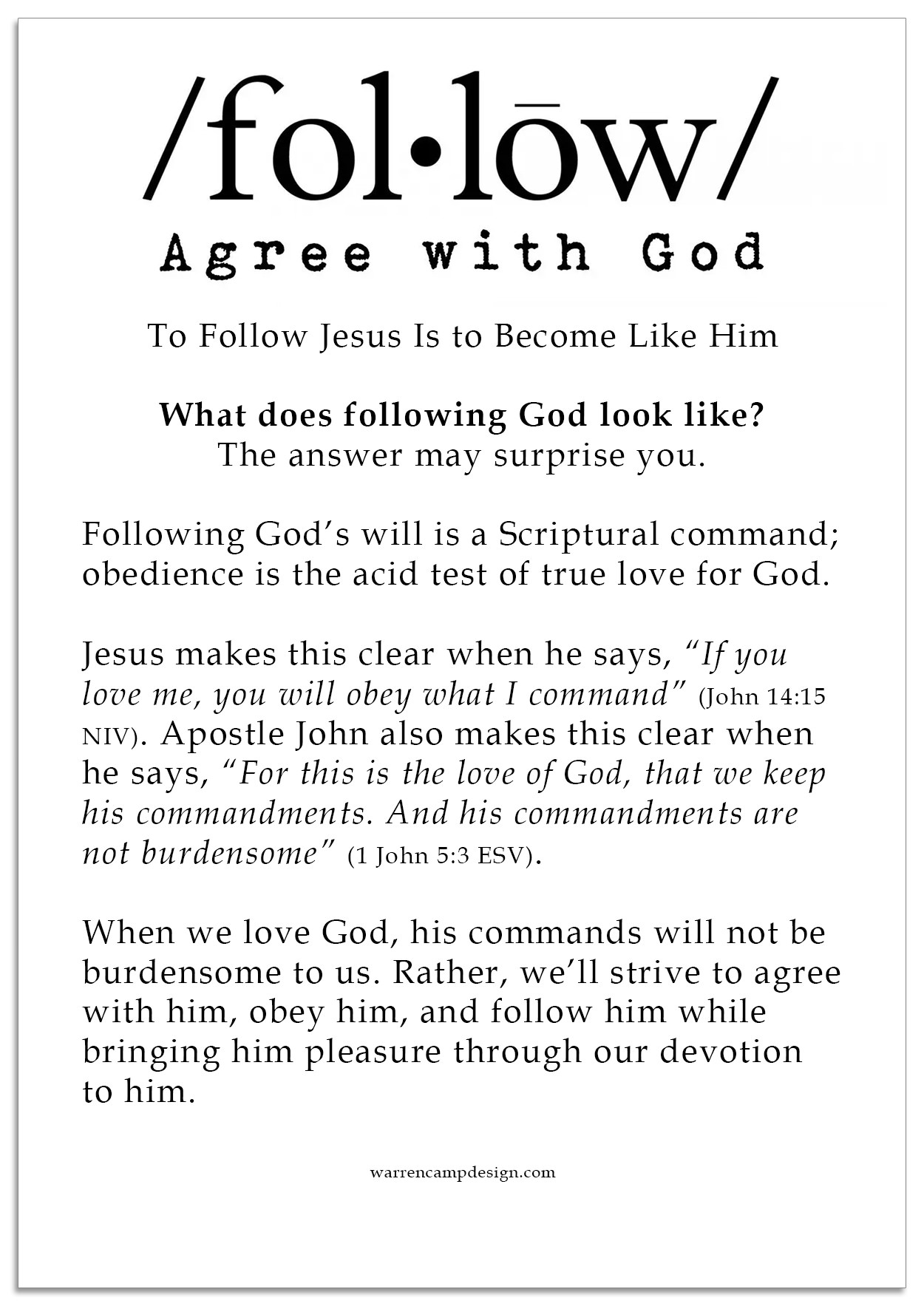
by Warren Camp
1 Peter 1:13–25 . . .
“Being Holy While Remaining Pure”
Peter writes in his first epistle about our living with a heavenly hope in the kingdom of God, which will come after the saints suffer for their faith (as we learned in Warren’s previous commentary on 1:1–12). He urges the followers of Jesus to submit to divinely ordained human institutions, even when believers become abused and corrupted by sinful leaders. Peter doesn’t present suffering as an exception. Instead, he sees it as the rule for true believers.
Christ Jesus’ suffering and death on Calvary’s cross turns out to be the standard for Christian living and service. As we’ll read 1st Peter, we’ll see a transformed apostle who became led by a theology that turned his thinking and lifestyle upside down.
On What or Whom Are You to Set Your Hope? (1:13)
13Therefore, with minds that are alert and fully sober, set your hope on the grace to be brought to you when Jesus Christ is revealed at his coming (1 Pet. 1:13 NIV).
Because Peter knew that hard times lay ahead for him and his fellow believers, he reminded them about their security as God’s children. The Lord had chosen them, giving them birth into a living hope for what God has promised. He also provided them (and us) with spiritual protection while guaranteeing eternity in heaven with Father God (see vv. 1–5). In today’s opening verse, Peter gave his readers specific ways to prepare for their upcoming trials. His words, divinely inspired by Lord Jesus, can effectively guide us also.
Peter’s teaching herein focuses on our mind: What we believe directly affects how we choose to respond to problems we face. If we trust that God is looking out for us, the threat of hard circumstances gets lessened. But, if we decide to rely on our own way of thinking, we’ll more likely react negatively to situations beyond our control. A negative attitude (whether from fear, worry, anger, or jealousy) can make things worse. To prepare for positive future development, we ought to start by developing biblical thinking.
A follow-up lesson from Peter (v. 13) instructs us to be “alert and fully sober,” suggesting that we remain balanced during crises. That said, we must resist attempting quick fixes for the problems we encounter while also refusing to take into account ungodly considerations. Satan, our enemy, will quickly propose options designed to trip up and divert us from keeping on God’s straight, well-lit path. Thankfully, with the Holy Spirit’s help, we can figure out how to stand firm, put on the full armor of God, and devotedly and obediently follow the Lord.
A Child Does as a Parent Does (1:14–16)
Children often behave like their parents. Remember: Christians are Father God’s children. God is holy and wants his children to also be holy, filled with his essential qualities. To be holy means to be, like him, completely separated from everything sinful and evil. Verse 14 directs all of us who are Jesus’ holy children to always conduct ourselves appropriately by: (1) obeying his commands; (2) submitting continually to his will; and (3) manifesting unwavering confidence in God our Father.
14As obedient children, do not conform to the evil desires you had when you lived in ignorance. 15But just as he who called you is holy, so be holy in all you do; 16for it is written: “Be holy, because I am holy” (1 Pet. 1:14–16).
To successfully fulfill God’s call to “be holy in all you do,” we obedient children must terminate a worldly lifestyle often characterized by lust and ignorance. “Holiness” isn’t so much living a life of moral purity; instead it’s all about “apartness.” A Christian is also to become different from what he was prior to being born again while also becoming distinct from fellow man. New laws will govern Christians, all of whom are to set one’s sights on new objects, as well as to fashion his life in accordance with new principles. That “apartness,” “differentness,” “distinctness,” and “newness” is all about our “holiness.”
Sadly, many have forgotten about God’s requirement of holiness (v. 15). Instead of keeping to his standards of attitude and behavior, they tend to embrace worldly values that seem more comfortable or self-satisfying. Then, secular goals like pleasure and material wealth tend to replace godly ones like obedience and servanthood. Such worldly goals are encouraged by our culture, which has little fear of God and typically ignores his warnings and commands.
Peter gives us a logical follow-up in v. 15 to the element of our being holy. Since God is holy, and because we profess to be his children who earnestly follow him, we too ought to be holy. Holiness ought to be the desire and duty of every Christian! We must especially watch and pray against those sins to which we’re inclined. The Word of God is the surest rule for a Christian’s life; it’s by this rule that we’re commanded to “be holy in all you do.” God makes holy those whom he saves.
Then in v. 16, Peter highlights a command found in Leviticus 11:44 that was initially addressed to the Israelites. However, it’s equally and correctly addressed to today’s self-acknowledged and devoted children of God. Thus, holiness is basic to true religion in both the Old and New Testaments; without holiness, no one shall see the Lord (Hebrews 12:14).
Fearing Our Father, the Judge (vv. 17–21)
Next, Peter tells us to live in reverent fear. Yes, he does! We followers of Father God must have an honest respect for whom God is. Knowing us as well as he does ought to frighten us, yes? That’s what Peter means. Conduct yourself with fear, remembering that you are dealing with One you cannot fool. Therefore, be honest and holy, realizing that you’ve been bought, not with the world’s currency but with the most-unique means of exchange: the gift of the precious blood of Christ Jesus.
17Since you call on a Father who judges each person’s work impartially, live out your time as foreigners here in reverent fear. 18For you know that it was not with perishable things such as silver or gold that you were redeemed from the empty way of life handed down to you from your ancestors, 19but with the precious blood of Christ, a lamb without blemish or defect. 20He was chosen before the creation of the world, but was revealed in these last times for your sake. 21Through him you believe in God, who raised him from the dead and glorified him, and so your faith and hope are in God (1 Pet. 1:17–21).
Have you yet come to fear God? What does v. 17 mean? “It combines quite a few varied ideas. First, Peter reminds us that this relationship we have with God — by His grace and through our faith in Christ — is a relationship between a child and a Father. It’s a relationship of open communication. He has called us (v. 15) and we call on Him. He’s a good Father. We’re saved; we’re secure. But this is not a Father who smiles and nods approvingly at every choice we make. He judges our conduct impartially and individually. In other words, He judges our actions with absolute fairness and with complete understanding of each of us specifically.
“This isn’t a judgment about whether or not God will allow us into heaven or punish us in His wrath. Our Father has given His believing children credit for Jesus’ perfectly righteous life; he’s allowed His Son’s death to pay the price for our sins. But our Father does judge our works. He pays attention to whether our actions are those of “holy people” set apart for His purposes (v. 15) or whether our choices continue to be driven by the “evil desires” we had when we lived in ignorance (v. 14).”[1]
In v. 17, Peter reminds his readers that the God whom they address as Father is also their judge. He’s one “who judges each person’s work impartially.” Therefore, they can be sure that the holiness to which Peter demands of them in vv. 14–16 will be crucial in the end.
The prominent theme in this epistle, as well as these five verses, is redemption. Peter spoke of this in the first part of this chapter (vv. 1–5); but here, he reminds us that our service to God should be based on and motivated by our salvation from sin and our hope of eternal life. He often refers to our salvation (Acts 4:12), which was brought about by our Father God, through his Son’s shed blood. We see God’s holiness, as well as his hatred of sin, when we remember the redemption of our sinfulness that Christ provided on Calvary’s cross.
The shedding of blood is essential to the Christian faith: Without a sacrifice, no one can have a relationship with the heavenly Father. If you remove the blood from a body, what do you have? You’re left with a lifeless corpse. The same is true of the Bible: Scripture would be no more than historical literature if we edited (1) all the unpleasant parts regarding animal sacrifice, (2) Jesus dying on the cross, or (3) the power of his blood.

To enjoy Alan Jackson’s rendition of “The Power of the Blood,” click here.
And enjoy Jackson’s performance of “Are You Washed in the Blood?”
Believers can’t be squeamish about explaining what truly happened at Golgotha. The words that we choose certainly influence listeners. Our telling them, “Jesus shed his blood for you” is a most-powerful statement. In fact, it’s the message that God repeats throughout his holy Word.
The Necessity for Christians to Love (vv. 22–25)
Holy living is incomplete if it isn’t accompanied by love. Every day, Christians must obey the truth to purify themselves. As they become purer, they begin to have a deeper love for one another and won’t have evil thoughts and feelings about their brethren.
22Now that you have purified yourselves by obeying the truth so that you have sincere love for each other, love one another deeply, from the heart. 23For you have been born again, not of perishable seed, but of imperishable, through the living and enduring word of God. 24For, “All people are like grass, and all their glory is like the flowers of the field; the grass withers and the flowers fall, 25but the word of the Lord endures forever.” And this is the word that was preached to you (1 Pet. 1:22–25).
The Christians to whom Peter wrote had been redeemed by the blood of the Lamb (vv. 18, 19). But to receive the purification of their souls, they had to obey the truth that has been revealed by the Spirit. Note: Verse 22 plainly says that we’re to obey the truth so our souls can be purified. We don’t receive forgiveness of our sins by “faith only.” Redemption requires obedience of Jesus’ truth.
On the day of Pentecost (see image to the right), Peter admonished those whom he was exhorting to be baptized to “save yourselves from this corrupt generation” (Acts 2:40). Here it’s evident exactly what Peter meant by one’s saving or purifying himself. Of course, Peter didn’t mean by this that a man is his own savior, or that he has the ability to bring about his purification. Both here and in Acts 2:38–39, Peter makes it absolutely clear that a man saves himself by devotedly obeying the gospel.
Jesus clearly teaches us to love, even when those around us seem unlovable. And he lived out what he taught: Jesus Christ loved us enough to die on the cross for our sake while we were still sinners (Romans 5:8). Surely, out of gratitude for what he’d done for us, and in reliance on the Lord’s strength, we — his faithful followers — can and ought to love others (1 John 3:14).
While it’s hard to respond to a person’s “unkindness” with our love, such godly behavior can certainly lead to great blessing. First: God is pleased with us; this realization should bring his children joy, peace, and a sense of accomplishment. Next, believers ought to feel anticipation to see how the Lord will move in this relationship. Finally, there will be an awareness that the Holy Spirit is working from within, enabling divine love to flow through those human lives that yield to him.
Peter’s next directive — “love one another deeply, from the heart” — tells us of a love that’s only possible of those who’ve been born again (v. 23). Verses 24 and 25a come from Isaiah 40:6–8. All people, even great people, will die. Their physical body will die, just as grass and flowers die. But God’s words will live for ever. When people accept the word of the Lord, their spirit will live for ever.
Treating others as we want to be treated is what builds the deep, satisfying connections all people desire. Without significant relationships, life lacks purpose and meaning, no matter how many possessions or acquaintances we have. So, think about the people you come in contact with throughout the week. Are you treating them the way Jesus had modeled — treating them with love?
About the concept “the word of the Lord endures forever,” Charles Spurgeon said this: “God’s Word never dies, God’s Word never changes. There are some who think we ought to get a new gospel every few years or even every few weeks, but that was not Peter’s notion. He wrote, and he was divinely inspired to write, concerning ‘the Word of God, which liveth and abideth for ever.’”
- Q. 1 While our culture increasingly distances itself from Jesus and us, his followers, how have you prepared spiritually for the days ahead?
- Q. 2 Knowing how much and how well God knows about you, does that frighten you? Why or why not?
- Q. 3 In what way is a person able to save himself or purify his soul? Has it worked for you?

‘The Denial of Saint Peter’
Click to open “Peter Masterpieces.”
Summary Video: “First Peter”
† Watch this overview video of First Peter created by BibleProject.
Warren’s New “Peter Masterpieces” Photo Album
† View several classic paintings of Saint Peter by art world masters: Rembrandt, Michelangelo, Da Vinci, Rubens, Goya, El Greco, Raphael, Masaccio, Giotto, Correggio, Tintoretto, Caravaggio, Veneziano, Tissot, and many more.
1 Peter 1:13–25
New International Version (NIV) or view it in a different version by clicking here.
— Listen to chapter 1, narrated by Max McLean.





